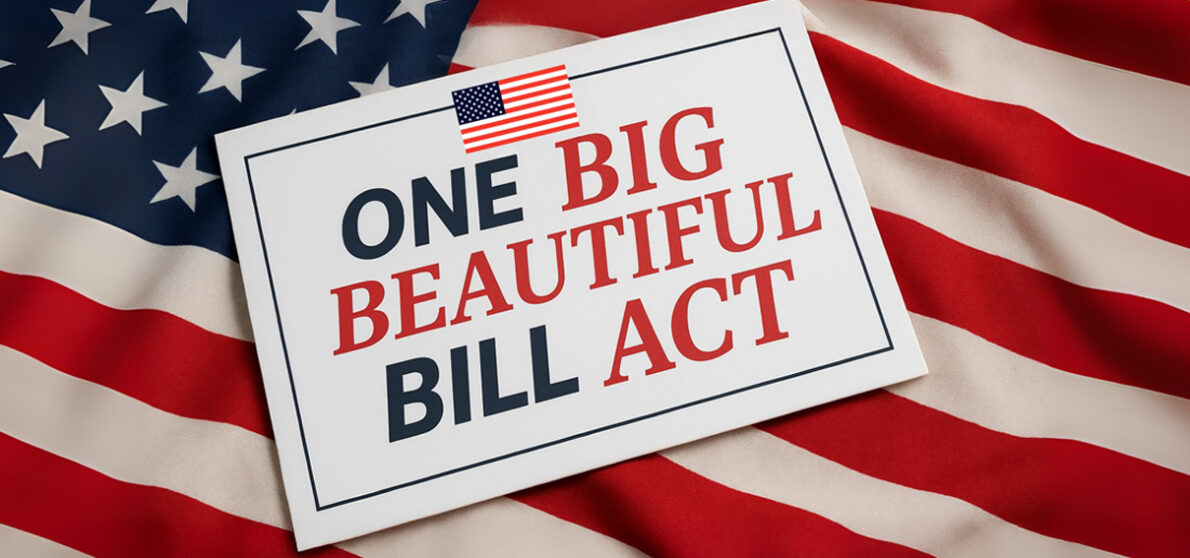On July 4, 2025, a new law with a rather memorable name, “the One Big Beautiful Bill Act of 2025“, was signed into effect as Public Law 119-21. While the name might sound playful, the impact is very real for taxpayers. This landmark legislation introduces new deductions, tax relief measures, and updated rules that could significantly lower your federal tax bill between 2025 and 2028.
From eliminating taxes on certain income types to adding fresh deduction opportunities for seniors, the changes aim to boost take-home pay and ease financial pressure for millions of Americans. Here’s a breakdown of the major provisions — and how they might benefit you.
1. No Federal Tax on Tips
Section 70201 of the Act removes federal income tax on qualified tips for eligible workers. This provision applies from tax year 2025 through 2028.
Who qualifies?
-
Employees and self-employed individuals in occupations that the IRS officially recognizes as customarily and regularly receiving tips as of December 31, 2024.
-
Tips must be reported on official tax documents such as Form W-2, Form 1099, or Form 4137.
Deduction limits:
-
Up to $25,000 annually.
-
For self-employed individuals, the deduction cannot exceed your net earnings from the business where the tips were earned.
-
Begins to phase out once Modified Adjusted Gross Income (MAGI) exceeds $150,000 ($300,000 for joint filers).
Key points to remember:
-
The deduction is available whether you itemize or take the standard deduction.
-
Certain “Specified Service Trades or Businesses” (SSTBs) under Section 199A are excluded — both employees and owners.
-
To claim, you must include your Social Security Number on your tax return and file jointly if married.
The IRS will publish a full list of qualifying occupations by October 2, 2025, and employers will need to file detailed tip information for eligible workers.
2. No Federal Tax on Overtime Pay
Section 70202 introduces a deduction for the extra portion of overtime pay — the “half” part of “time-and-a-half” — as required by the Fair Labor Standards Act (FLSA).
Effective dates: 2025–2028
Deduction limits:
-
$12,500 annually for single filers
-
$25,000 for joint filers
-
Phases out for MAGI above $150,000 ($300,000 for joint filers)
Eligibility rules:
-
Available for both itemizers and non-itemizers
-
Must include your SSN and file jointly if married
Example: If your regular hourly rate is $20 and you work overtime at $30/hour, you can deduct the $10/hour “extra” pay portion — up to the annual limit.
Employers will be required to report the total qualified overtime pay on tax documents for each eligible worker.
3. Deduction for Car Loan Interest
Section 70203 creates a completely new tax deduction for interest paid on car loans, as long as the vehicle is new, purchased for personal use, and meets U.S. manufacturing requirements.
Effective dates: 2025–2028
Deduction limits:
-
Up to $10,000 in qualifying interest per year
-
Phases out for MAGI above $100,000 ($200,000 for joint filers)
To qualify:
-
The loan must be for a new vehicle (used cars and leases don’t qualify)
-
Loan originated after December 31, 2024
-
The vehicle must have undergone final assembly in the U.S.
-
You must include the Vehicle Identification Number (VIN) on your tax return
Eligible vehicles include: Cars, SUVs, vans, pickup trucks, and motorcycles (under 14,000 pounds GVWR).
Lenders will be required to provide annual interest statements to both you and the IRS.
4. Additional Deduction for Seniors
Section 70103 offers a major win for Americans aged 65 and older — an extra $6,000 deduction per eligible individual.
Effective dates: 2025–2028
Key details:
-
Married couples where both are 65+ can claim $12,000
-
This deduction is on top of the existing senior standard deduction under current tax law
-
Phases out for MAGI above $75,000 ($150,000 for joint filers)
-
Available for both standard and itemized returns
To claim, you must include your SSN and, if married, file jointly.
Why These Changes Matter
The One Big Beautiful Bill Act of 2025 is design to return more money to taxpayers’ pockets. By reducing tax liability on everyday earnings — like tips, overtime, and car loan interest — the Act helps working Americans keep more of what they earn.
For seniors, the extra deduction offers much-needed relief during retirement, when fixed incomes can make rising costs harder to manage.
Tips for Maximizing Your Benefits
To make the most of these provisions:
-
Stay organized – Keep all pay stubs, tip logs, overtime records, and car loan interest statements.
-
Track your MAGI – If you’re near the phase-out limits, careful planning could help you qualify for the full deduction.
-
File early – The sooner you prepare, the less likely you are to miss deductions.
-
Use professional guidance – Complex new rules often come with IRS clarifications. Tax software like USeFiler can guide you step-by-step.
-
Check for IRS updates – Especially for the list of tip-eligible occupations and vehicle qualification details.
The Bottom Line
The One Big Beautiful Bill Act of 2025 is more than just a catchy title — it’s a sweeping tax change that could save eligible taxpayers thousands of dollars over the next four years.
By understanding each provision, keeping accurate records, and filing strategically, you can take full advantage of these new deductions before they expire in 2028.
USeFiler makes it easy to claim every deduction you deserve. Our platform guides you through the process, ensures compliance, and helps you file with confidence.

